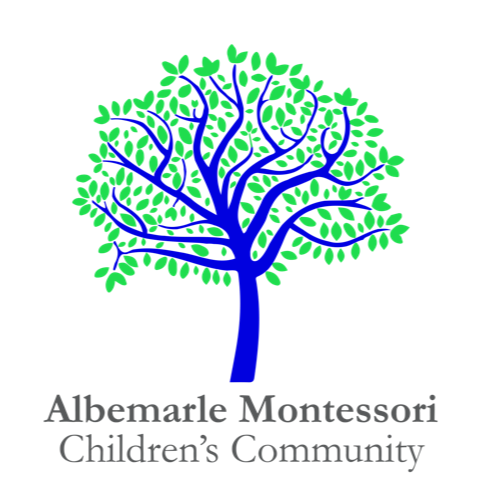PROCESS & PROGRESS
At Albemarle Montessori Children’s Community, we assess each child individually, based on his or her unique character and capabilities. The lead guide observes your child on a daily basis, looking at academic progress, emotional well-being, social interactions, and overall physical health. Our lead guides account for every single lesson given to each child and record it into our Transparent Classroom online platform, and you will find that your child’s lead guide will know and understand your child. An older child will have language and math work to bring home regularly so you can see his or her progress. All outcomes are unique to your child.
We understand that your child is the most important part of your life, and you have entrusted this precious part to our care. We want to make sure you feel safe and confident when your small child is with us. We use Transparent Classroom, a confidential online record-keeping system, that allows you to keep track of your child’s progress. In the elementary classroom, this is supplemented with a regular schedule for viewing your child’s portfolio of work and work journals. We also provide a progress report for each child semi-annually. You are also welcome to communicate with your child’s lead guide about any questions or concerns you may have. The director is also available to answer any general questions or concerns.
PRIMARY COMMUNITY ACADEMIC OUTCOMES
The strength of Montessori education is that it adapts to the learning style and needs of every particular child. Consequently, it is impossible to say how much progress generically a child will make throughout his or her time at AMCC so providing definitive outcomes for a whole class is difficult. In order to give you some sense, here is an example of outcomes from the Primary Community level. We feel confident that most children who go through the entire three-year Primary Community cycle will achieve the following academic milestones and outcomes
These accomplishments are impressions, solidified through repetition and progress towards abstraction. This work will make it much easier for your child to understand these academic concepts when they are reintroduced in elementary school.
Language (in addition to the English Standards of Learning for Virginia)
The ability to read and write in cursive and block letters
An impression of different parts of speech, beginning with nouns, articles and adjectives. Some will be introduced to prepositions, conjunctions, adverbs, and verbs.
The structure of sentences
Math (in addition to the Mathematics Standards of Learning for Virginia)
Counting and writing numbers from 0 to 10,000
Understanding of the Decimal System and how it works
The concept of zero as an empty set
The four static operations of addition, multiplication, subtraction, and division; some will also understand the concept of dynamic addition, multiplication, subtraction, and division
The names and shapes of plane and three-dimensional geometric figures
Cultural Activities (in addition to the History & Social Sciences Standards of Learning for Virginia)
Knowledge about every continent as well as the names of many countries on each continent
An understanding of various cultures around the world and their heritages
An introduction to a foreign language
An exposure to different genres of art and music
An introduction to music theory and how to use various media for art and expression
Science (in addition to the Science Standards of Learning for Virginia)
An understanding of the parts of plants and animals
How to take care of plants and animals
A basic introduction to physical science through exposure to the workings of physical properties, magnetism, osmosis, viscosity, and other principles of physical law
A basic introduction to earth science through botany and zoology
OTHER ESSENTIAL ACADEMIC OUTCOMES
A Montessori education develops the whole child. The following outcomes are for students in both the Primary and Elementary Communities.
Intrinsic Motivation – develop the habit to do something that needs to be done but without being told to do so as well as challenge oneself to improve oneself
Critical Thinking Skills – the ability to question for deeper understanding, think independently (to think “outside the box”), and apply knowledge learned to solve new challenges
Learn for the Sake of Learning – making learning a lifelong passion
Understand the Process of Learning – understand the process behind the acquisition of knowledge, not just the knowledge itself (not only “what I’ve learned, but how I learned it”).
Integrated Knowledge – acquire new knowledge more profoundly because it is learned not as part of a group of facts but by the synthesis of new knowledge with that which is already known.
Social & Emotional Outcomes
A Montessori education from Albemarle Montessori Children’s Community is much, much more than academic. Research has shown that Montessori children have high emotional/social intelligence and the skills necessary to succeed in a twenty-first century world. The following skills and attributes can be found in the children who attend a Montessori program of high quality such as our Albemarle Montessori Children’s Community. These outcomes are detrimental to a child’s growth.
Self-Control and Setting Limits – allow the child to make appropriate choices, learn to share, compromise, and understand the natural consequences of one’s actions
Empathy – feel others’ concerns, understand their views, and be responsive to others
Understand and Appreciate Diversity – observe the richness diversity offers, which leads to respect for others
Intrinsic Understanding of Right and Wrong – a moral compass through constructive social interaction
Ability to Work Independently – create one’s own schedule/plan and follow it accordingly
Work Collaboratively – the ability to work cooperatively and effectively within groups as well as the ability to communicate effectively with people of all ages
Leadership Skills – the ability to build a consensus and provide guidance to a group
Understand Oneself – develop greater self-confidence and self-assurance. Through works and interactions with others, one learns to appreciate oneself.



